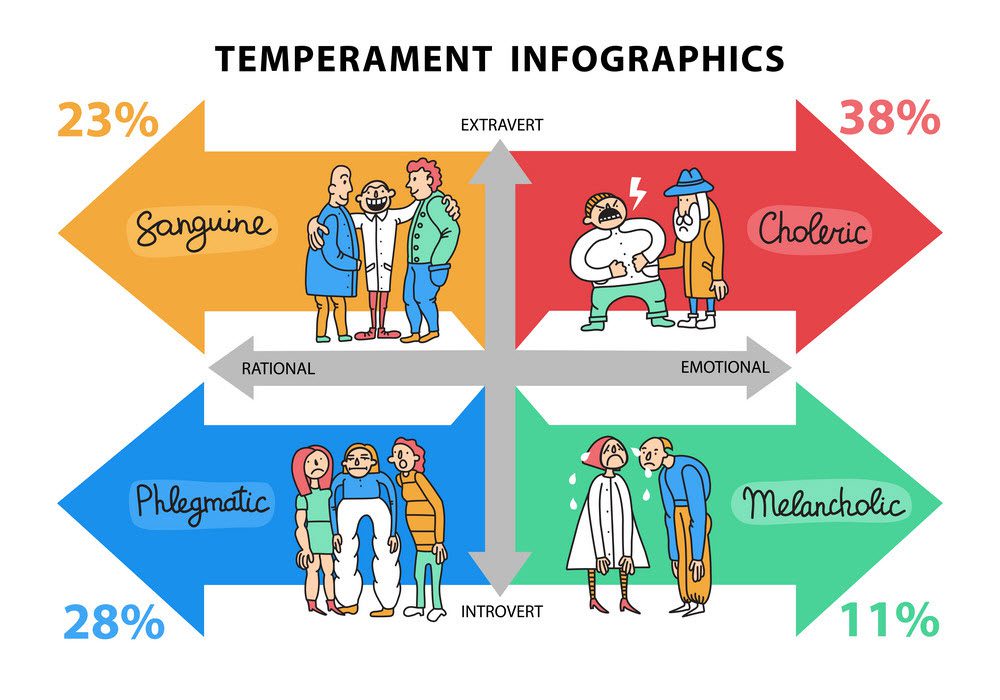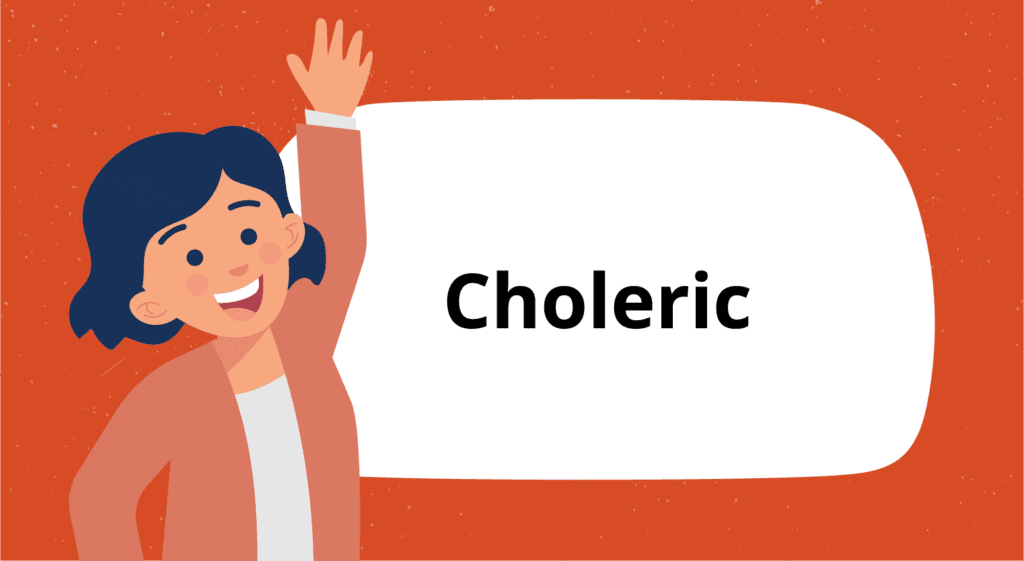
What are Personality Temperaments, Traits, and Types?
Personality Temperaments, Traits, and Types are used in psychology to discuss a person’s Personality. Although often used interchangeably, the differences are worth understanding.
Personality is a collection of Emotions, Perceptions, and Actions that interact with each other and regulate themselves, shaping a dynamic system that forms a person’s “Behavioral Patterns.”
Many factors affect a person’s Personality, such as education, socialization, and other various pressures and aspects of life.
Personality Traits are observable characteristic patterns of Thoughts, Feelings, and Behaviors that are consistent and stable over time and across different situations throughout your life. Three criteria characterize Personality Traits: (1) consistency, (2) stability, and (3) individual differences.
For example, if you are talkative at home, you are also talkative at work. And if you were talkative as a child, you are still talkative as an adult.
Personality Temperaments are biological Traits that are partly inherited through your genes and partially determined by your brainstem. They don’t change throughout your life.
These “Natural Traits” are regarded as innate or inborn and not learned. Your Personality Temperament is formed as an infant and never changes. It is also hard to modify, manipulate, or change because it is genetic. In some way or another, your inherited behavioral tendency will always be there.
A Personality Type identifies a specific collection of Traits, both learned and natural, comprising a broad, general classification. Personality Types involve qualitative differences between people, whereas Personality Traits are the quantitative differences between people.
The most crucial difference between Trait Theory and Type Theory is that Type Theory views people’s characteristics as discrete categories, while Trait Theory views these characteristics as a continuum.
For example, where a Type Theorist would claim that introverts and extraverts are two types of people, a Trait Theorist claims extraversion is a gradient and individuals can fall somewhere in the middle.
Your Temperaments and acquired Traits form your Personality, which can be Typed.
The Sanguine Temperament Type

Sanguine is the most common Temperament Type, typically either Primary or Secondary. This Temperament Type is just as likely in men as in women.
People with a Sanguine Personality Type tend to be lively, optimistic, joyful, and carefree. They love adventure and have a high-risk tolerance.
Sanguine people are typically poor at tolerating boredom and will seek variety and entertainment. This trait can sometimes negatively affect their romantic and other relationships.
Because this Temperament is prone to pleasure-seeking behaviors, many people with Sanguine personalities will likely struggle with addictions. In addition, their constant cravings can lead to overeating and weight problems.
Sanguine people are very creative and can become great artists. Moreover, they are fantastic entertainers and will do well in the entertainment industry if they choose careers in this field.
Learn more about the Sanguine Temperament Type.
The Phlegmatic Temperament Type

Phlegmatic Temperament is typical and almost the opposite of Sanguine Temperament. However, it is possible to have a Sanguine Temperament as your Primary Type and a Phlegmatic Temperament as your Secondary Type or vice versa.
Someone with a Phlegmatic personality is usually a people person. They seek interpersonal harmony and close relationships, which makes Phlegmatic Type people loyal spouses and loving parents.
Phlegmatic people make it a point to preserve their relationships with old friends, distant family members, and neighbors.
People with a phlegmatic temperament tend to avoid conflict and mediate with others to restore peace and harmony. They are very much into charity and helping others.
Learn more about the Phlegmatic Temperament Type.
The Melancholy Temperament Type

When most people hear the word melancholic, they think of depression. However, the Melancholy Temperament Type is not necessarily depressed so much as they are cautious.
Melancholic people love their families and friends; unlike Sanguine, they do not seek novelty and adventure. Even more so, they avoid it as much as they can.
Someone with a Melancholic Temperament is unlikely to marry a foreigner or leave their homeland for another country.
Melancholic people are very social and seek to contribute to the community. Being extremely thorough and accurate, they are fantastic managers with good personalities.
Learn more about the Melancholy Temperament Type.
The Choleric Temperament Type

The Choleric Temperament is the rarest of the four Primary Types. In particular, females with the Choleric Type as their Primary Temperaments are scarce.
It is more common for Choleric to be a Secondary Temperament, although this is not as common as other combinations.
Someone with a pure Choleric Temperament is usually a goal-oriented person.
Choleric people are savvy, analytical, logical, practical, and straightforward, but they do not necessarily make good or friendly companions.
Cholerics dislike small talk and prefer deep and meaningful conversations. They would rather be alone than in the company of shallow, superficial people.
Ideally, they want to spend time with people with similar professional interests.
Learn more about the Choleric Temperament Type.
Temperament Personality Type Cross-reference
Pure Temperament MBTI Cross-reference
Predominant-Secondary Temperaments MBTI Cross-reference
- Sanguine-Phlegmatic –> ENFP
- Sanguine-Choleric –> ENTP
- Sanguine-Melancholic –> ESFJ
- Phlegmatic-Sanguine –> ISFP
- Phlegmatic-Choleric –> INTP
- Phlegmatic-Melancholic –> ISFJ
- Choleric-Sanguine –> ESTP
- Choleric-Phlegmatic –> ENFJ
- Choleric-Melancholic –> ESTJ
- Melancholic-Sanguine –> ISTP
- Melancholic-Phlegmatic –> INFJ
- Melancholic-Choleric –> INTJ



